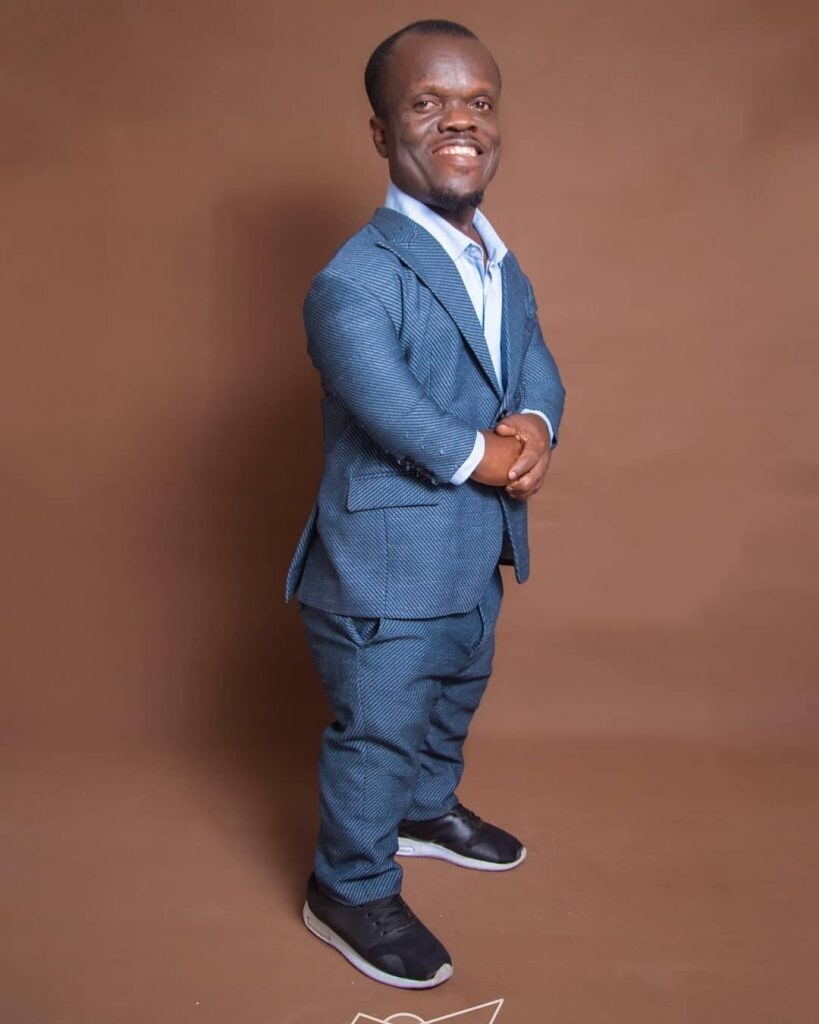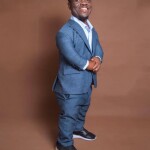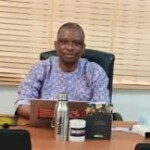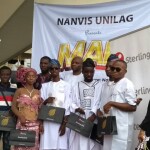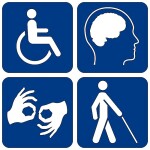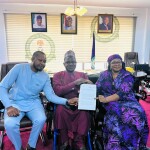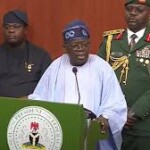How economic consideration encourages and sustains violation of disability law in Nigeria’s movies industry
Gideon Oladimeji
A popular skit maker ran like hell after a gorgeous lady all bespectacled in a sassy dress inside her chauffeur- driven car. When she climbs down, and shows her blank eyes, the skirt hunter beats back. His new-catch-to-be wields a white cane, groping as she comes out of the car.
It’s a skit.
And it is one of the many representations of disabilities in the world’s second largest movies/entertainment industry. People with disabilities (PWDs) freak you out, even when you are in love—that’s the message Nigerian skit makers and entertainers get out to the world. And many viewers’ opinions get shaped that way.
On occasions the PWD realities are not bandied in movies, their actors could suffer from and endure ableism. That is when actors with no disabilities smartly play characters with disabilities. And they ably, according to judges and reviews, do these most times—going as far as winning the Nigeria Movies Awards.
Nollywood is not alone, however. The most sophisticated of the world’s movies industries is guilty as well, despite the on-going effort to make Hollywood inclusive. No fewer than 61 Hollywood actors who played characters with disabilities were nominated for Oscars awards in 2019. According to Octane Seating, 27 of them won. Only two of the winners have disabilities.
The industry is guiltier here. PWDs are not welcome on most talent-hunt shows, including the MTN Project Fame and others, let alone on set—except as minors. Or stereotypes.
Even flicks with lots of rave reviews, like Love Castle, which is about disabilities, fall short of inclusive representation. The protagonist in the 2021 movie shot in the US and Nigeria is a disabled character which Adedimeji Lateef acted.
“The movie is meant to establish that there is ability in disability,” the actor with no disability told the News Agency of Nigeria in an interview.
The character managed to make good in life in the telling of the story. However, typecast PWDs in Nollywood hardly get rich or succeed as characters. Except when ableists like Adedimeji act the character with disabilities. And viewers have to accept that as what defines disabilities.
Victor Udochukwu Nwoagu, a member of the little people community in Nigeria, said it is a reality they can’t run away from in Nollywood and other movies industries around the world. And the viewers, especially in Nigeria, he noted, have come to accept and enjoy it.
“One of the ways you can be popular in Nigeria’s movie industry is by acting a stock character,” he said in an interview with ER.
Nwaogu, a skit maker, media personality, and actor, has collaborated with Broda Shaggi and other content producers in the industry. He understands how the industry’s players follow the money in Nollywood. Which is why producers and marketers will rather play a funny Broda Shaggi than a grave, sober Broda Shaggi. This also applies to actors known for playing demons and Satan. If the producers do otherwise, it may mean ‘bad market’ for them. “They look at your past activities, and subject you to similar roles in the new project,” he said.
The reason is still the bottom line. “They want to produce successful movies; they are not interested in changing perception in society.”
Similar fear reigns in Hollywood which has, according to the American National Disability Institute, a $1-trillion-disability market to serve.
Nigeria has no idea of the size of its own disability market. So it’s easy for movie makers to sacrifice inclusion, and keep typecasting to the detriment of about 30 million PWDs in Nigeria. And it’s okay so long as cinema ticket sales keep rising.
The little effort so far in studying inclusion in Nollywood was put in by the Ford Foundation. In 2021, the foundation commissioned Arden & Newton, a brand agency, to study and report inclusion of women with disabilities in Nollywood.
“We seek to throw light on the root cause of these injustices and inequalities that exist and how persons with disability are portrayed in Nollywood,” Onyinye Onyemobi, the foundation’s rep in Nigeria, said. She was remarking at a symposium in Lagos where the findings came up for deliberation.
The subject remains only an exercise in intellectual rigour. No policymaker, including the Film Censorship Board, the Nigeria Broadcasting Commission, and others, have ever considered the findings, or any other related. Yet it reveals the poor implementation of Discrimination Against Persons With Disabilities Act 2018. Not to mention how it can form the core of another policy that could further inclusion in Nollywood.
Among other things, the Ford report found that the characterization of women with disabilities are not strong enough in the media, and as a result, people assume that this is their reality. Men with disabilities are not better off.
Nwaogu accepts typecasting and other forms of misrepresentation as the reality. But they hurt, nonetheless.
“Let me be very sincere with you as a little person, attention is not given to us when it comes to casting,” he said. “They give us idiot characters like a chief priest, a bush baby, and others.” He, for one, has seen enough, and now kicks against such roles. “They don’t add any value to our nature.” It rather reinforces superstition and misrepresentation about little people not being fully formed humans, he added. Now he asks any producer who contracts him for any role. If it’s about little people being bush babies or witchdoctors, he rejects the role. There’s a level of self-respect a UI-graduate of theatre art and media management should have.
Other actors with disabilities may not have the financial muscle or self-esteem to do the same. Because everything rises and falls on survival first.
“Nigeria is a struggling society,” he said. “I don’t know if there’s any policy that gives us the right to demand roles or protest exclusion. But for us who I refer to as minors, survival comes first.” According to him, if that platform is a means of surviving, no such actor will want to question a typecast role or misrepresentation.
No group will help them shake off the injustice either. Not even the Actors Guild of Nigeria. Nwaogu believes the guild has no policy that addresses producers typecasting PWDs. “Even if they have, how strong are the actors’ guild?” He doubts if the guild has what it takes to protect actors’ interests.
So for economic reason, disabled actors in Nollywood have accepted to be cast as laughing butts and weirdos. They are ready to endure ableism, too. But elsewhere around the world, inclusion is gaining traction in the creative industries. Studies have confirmed how Hollywood uptake of inclusion has witnessed a steady rise from 2.1 percent since 2019. A 2020 GLAAD report said 3.5 percent of TV series regulars are actors with disabilities. The 2021 figure witnessed 12 percent uptick. Which is better than none.
Nollywood is not considering that now—as right violation carried out with impunity, according to the Ford Foundation report.

